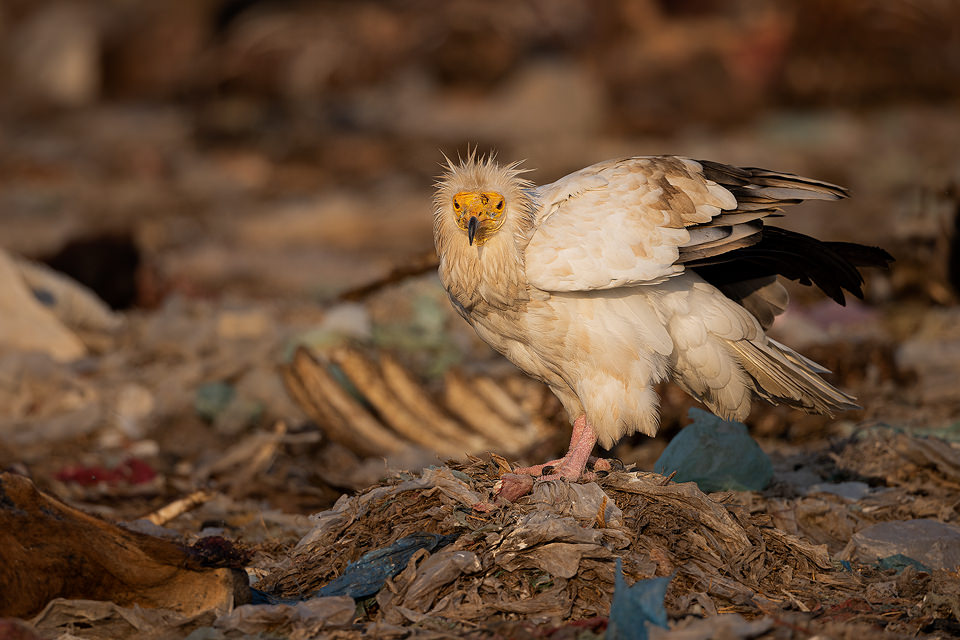Egyptian Vulture with Cattle Jaw
Adult Egyptian vulture perched on a pile of plastic feeding on part of a carcass. Jorbeer vulture sanctuary, Rajasthan, India. The population of Egyptian vultures decreased dramatically in recent years and is now endangered. This decline in numbers is largely due to poisoning when they unknowingly feed on carcasses that are full of harmful chemicals and lead.
Jorbeer is a government-approved carcass dumping ground where farmers can bring dead cattle. This cow graveyard makes for macabre views and an overpowering stench (not the most pleasant location I’ve visited!) but attracts an astounding variety of raptors, including seven species of vulture!
Bird of Prey populations have decreased dramatically in recent years, many species are now endangered. This decline in numbers is largely due to poisoning when they unknowingly feed on carcasses that are full of harmful chemicals and lead.
Egyptian Vulture with Cattle Jaw – About the Egyptian vulture:
The Egyptian vulture (Neophron percnopterus) is a small Old World vulture, also known as the white scavenger vulture or the pharaoh’s chicken. They are widely distributed throughout their range and can be seen from Southwest Europe, across North Africa to India. An Egyptian vultures diet mainly consists of carrion but they are opportunistic predators and will prey on small mammals, birds, and reptiles. They have also been observed feeding on the eggs of other birds, even breaking larger ones by tossing a large pebble onto them! The use of tools is an uncommon trait in birds
You can find out more about Egyptian vultures here.
